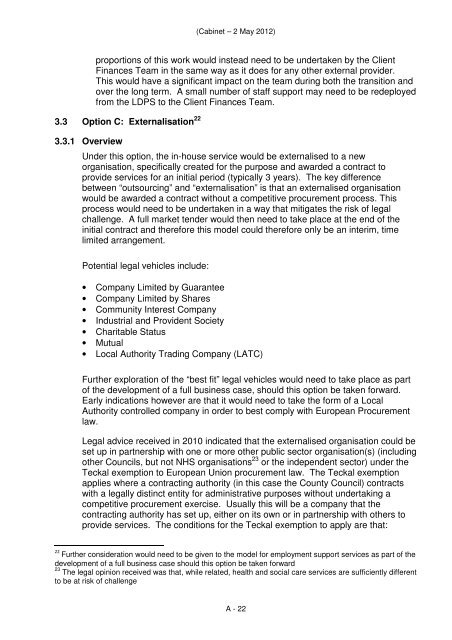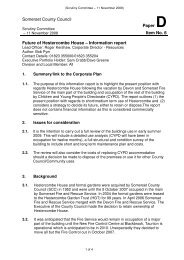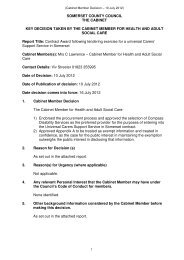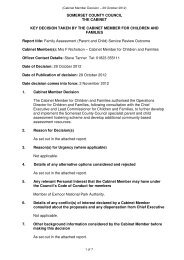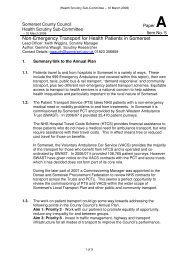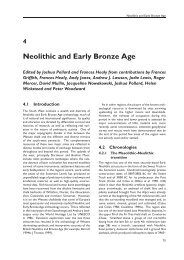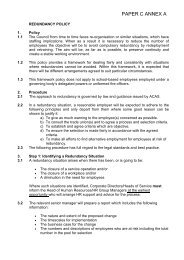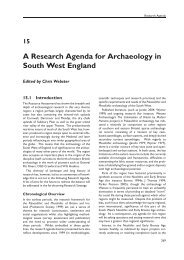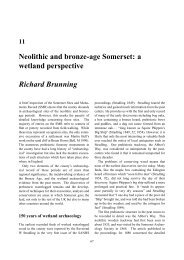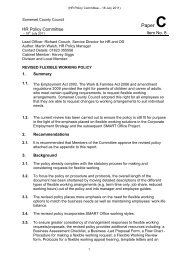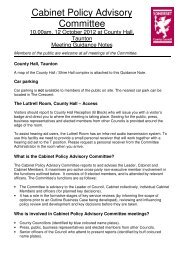Service Reviews â Outline Business Case - Somerset County Council
Service Reviews â Outline Business Case - Somerset County Council
Service Reviews â Outline Business Case - Somerset County Council
You also want an ePaper? Increase the reach of your titles
YUMPU automatically turns print PDFs into web optimized ePapers that Google loves.
(Cabinet – 2 May 2012)<br />
proportions of this work would instead need to be undertaken by the Client<br />
Finances Team in the same way as it does for any other external provider.<br />
This would have a significant impact on the team during both the transition and<br />
over the long term. A small number of staff support may need to be redeployed<br />
from the LDPS to the Client Finances Team.<br />
3.3 Option C: Externalisation 22<br />
3.3.1 Overview<br />
Under this option, the in-house service would be externalised to a new<br />
organisation, specifically created for the purpose and awarded a contract to<br />
provide services for an initial period (typically 3 years). The key difference<br />
between “outsourcing” and “externalisation” is that an externalised organisation<br />
would be awarded a contract without a competitive procurement process. This<br />
process would need to be undertaken in a way that mitigates the risk of legal<br />
challenge. A full market tender would then need to take place at the end of the<br />
initial contract and therefore this model could therefore only be an interim, time<br />
limited arrangement.<br />
Potential legal vehicles include:<br />
• Company Limited by Guarantee<br />
• Company Limited by Shares<br />
• Community Interest Company<br />
• Industrial and Provident Society<br />
• Charitable Status<br />
• Mutual<br />
• Local Authority Trading Company (LATC)<br />
Further exploration of the “best fit” legal vehicles would need to take place as part<br />
of the development of a full business case, should this option be taken forward.<br />
Early indications however are that it would need to take the form of a Local<br />
Authority controlled company in order to best comply with European Procurement<br />
law.<br />
Legal advice received in 2010 indicated that the externalised organisation could be<br />
set up in partnership with one or more other public sector organisation(s) (including<br />
other <strong>Council</strong>s, but not NHS organisations 23 or the independent sector) under the<br />
Teckal exemption to European Union procurement law. The Teckal exemption<br />
applies where a contracting authority (in this case the <strong>County</strong> <strong>Council</strong>) contracts<br />
with a legally distinct entity for administrative purposes without undertaking a<br />
competitive procurement exercise. Usually this will be a company that the<br />
contracting authority has set up, either on its own or in partnership with others to<br />
provide services. The conditions for the Teckal exemption to apply are that:<br />
22 Further consideration would need to be given to the model for employment support services as part of the<br />
development of a full business case should this option be taken forward<br />
23 The legal opinion received was that, while related, health and social care services are sufficiently different<br />
to be at risk of challenge<br />
A - 22


